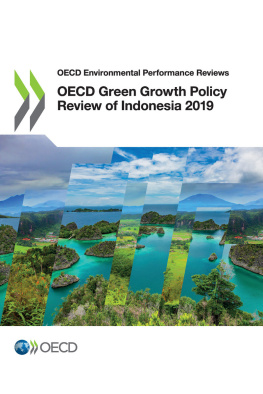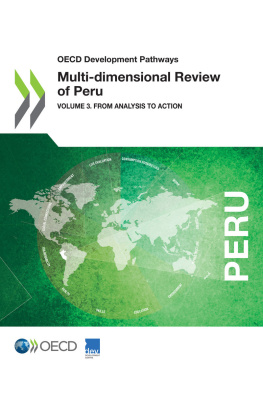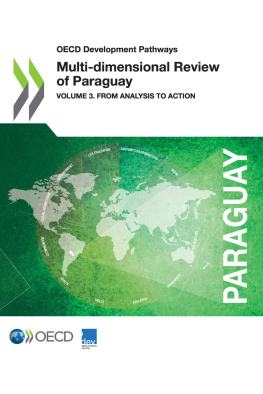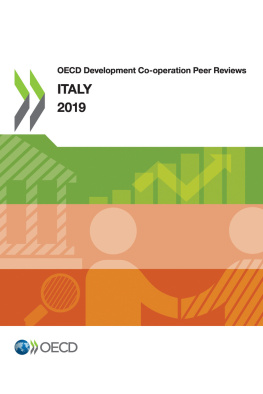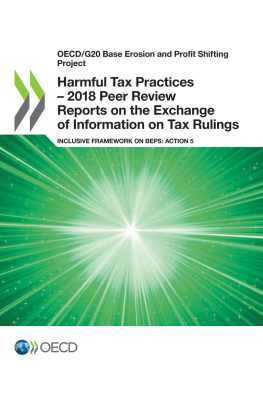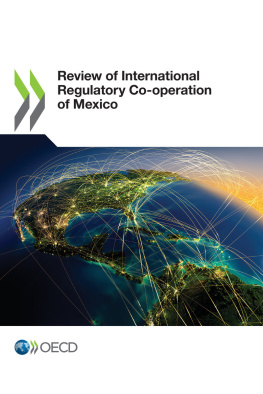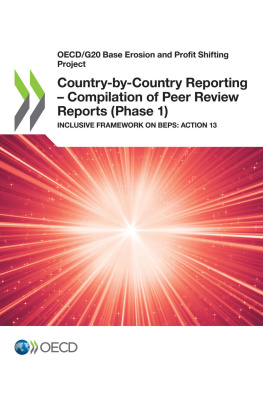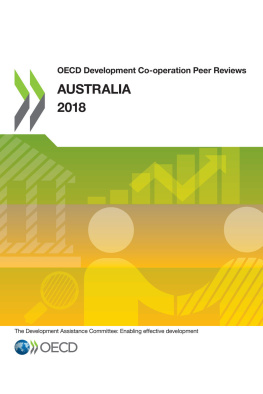OECD - Country-by-Country Reporting – Compilation of Peer Review Reports (Phase 2)
Here you can read online OECD - Country-by-Country Reporting – Compilation of Peer Review Reports (Phase 2) full text of the book (entire story) in english for free. Download pdf and epub, get meaning, cover and reviews about this ebook. year: 2019, publisher: OECD Publishing, genre: Computer. Description of the work, (preface) as well as reviews are available. Best literature library LitArk.com created for fans of good reading and offers a wide selection of genres:
Romance novel
Science fiction
Adventure
Detective
Science
History
Home and family
Prose
Art
Politics
Computer
Non-fiction
Religion
Business
Children
Humor
Choose a favorite category and find really read worthwhile books. Enjoy immersion in the world of imagination, feel the emotions of the characters or learn something new for yourself, make an fascinating discovery.
Country-by-Country Reporting – Compilation of Peer Review Reports (Phase 2): summary, description and annotation
We offer to read an annotation, description, summary or preface (depends on what the author of the book "Country-by-Country Reporting – Compilation of Peer Review Reports (Phase 2)" wrote himself). If you haven't found the necessary information about the book — write in the comments, we will try to find it.
OECD: author's other books
Who wrote Country-by-Country Reporting – Compilation of Peer Review Reports (Phase 2)? Find out the surname, the name of the author of the book and a list of all author's works by series.
Country-by-Country Reporting – Compilation of Peer Review Reports (Phase 2) — read online for free the complete book (whole text) full work
Below is the text of the book, divided by pages. System saving the place of the last page read, allows you to conveniently read the book "Country-by-Country Reporting – Compilation of Peer Review Reports (Phase 2)" online for free, without having to search again every time where you left off. Put a bookmark, and you can go to the page where you finished reading at any time.
Font size:
Interval:
Bookmark:
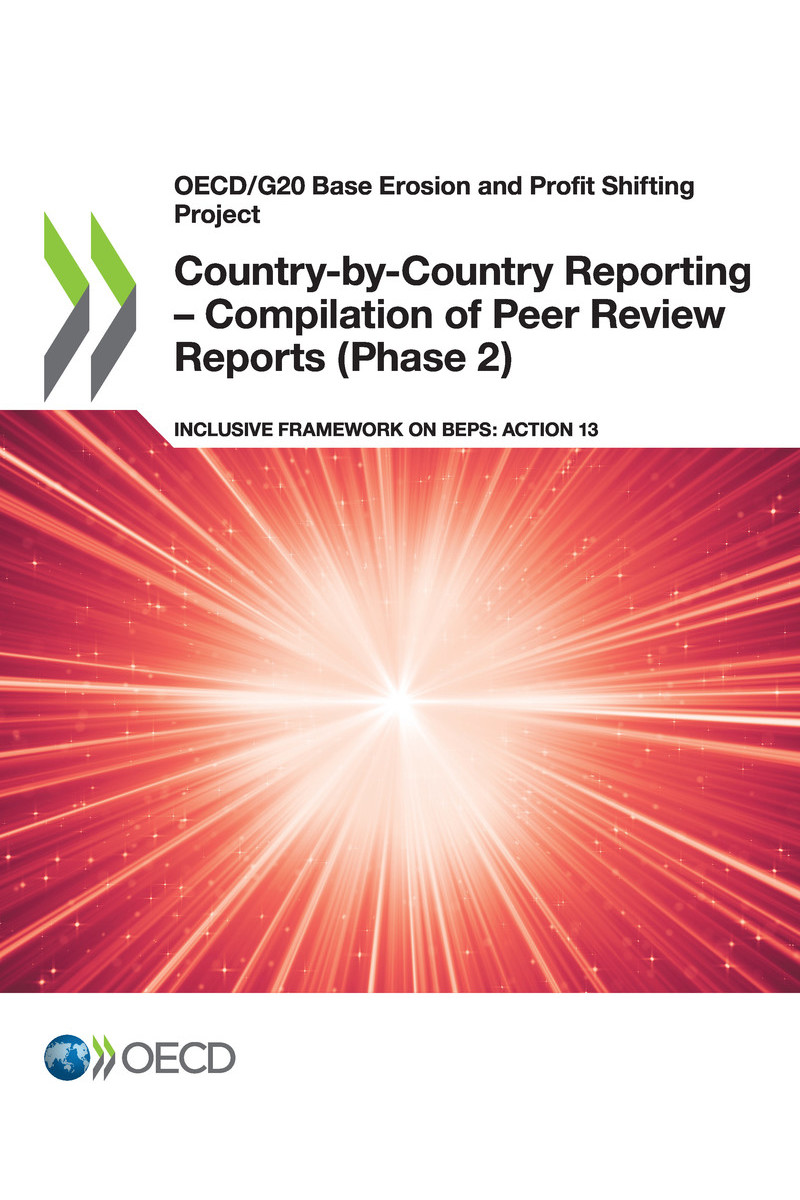
OECD (2019), Country-by-Country Reporting Compilation of Peer Review Reports (Phase 2): Inclusive Framework on BEPS: Action 13 , OECD/G20 Base Erosion and Profit Shifting Project, OECD Publishing, Paris, https://doi.org/10.1787/f9bf1157-en .
The integration of national economies and markets has increased substantially in recent years, putting a strain on the international tax rules, which were designed more than a century ago. Weaknesses in the current rules create opportunities for base erosion and profit shifting (BEPS), requiring bold moves by policy makers to restore confidence in the system and ensure that profits are taxed where economic activities take place and value is created.
Following the release of the report Addressing Base Erosion and Profit Shifting in February 2013, OECD and G20 countries adopted a 15-point Action Plan to address BEPS in September 2013. The Action Plan identified 15 actions along three key pillars: introducing coherence in the domestic rules that affect cross-border activities, reinforcing substance requirements in the existing international standards, and improving transparency as well as certainty.
After two years of work, measures in response to the 15 actions were delivered to G20 Leaders in Antalya in November 2015. All the different outputs, including those delivered in an interim form in 2014, were consolidated into a comprehensive package. The BEPS package of measures represents the first substantial renovation of the international tax rules in almost a century. Once the new measures become applicable, it is expected that profits will be reported where the economic activities that generate them are carried out and where value is created. BEPS planning strategies that rely on outdated rules or on poorly co-ordinated domestic measures will be rendered ineffective.
Implementation is now the focus of this work. The BEPS package is designed to be implemented via changes in domestic law and practices, and in tax treaties. With the negotiation of a multilateral instrument (MLI) having been finalised in 2016 to facilitate the implementation of the treaty related BEPS measures, over 85 jurisdictions are covered by the MLI. The entry into force of the MLI on 1 July 2018 paves the way for swift implementation of the treaty related measures. OECD and G20 countries also agreed to continue to work together to ensure a consistent and co-ordinated implementation of the BEPS recommendations and to make the project more inclusive. Globalisation requires that global solutions and a global dialogue be established which go beyond OECD and G20 countries.
A better understanding of how the BEPS recommendations are implemented in practice could reduce misunderstandings and disputes between governments. Greater focus on implementation and tax administration should therefore be mutually beneficial to governments and business. Proposed improvements to data and analysis will help support ongoing evaluation of the quantitative impact of BEPS, as well as evaluating the impact of the countermeasures developed under the BEPS Project.
As a result, the OECD established the Inclusive Framework on BEPS, bringing all interested and committed countries and jurisdictions on an equal footing in the Committee on Fiscal Affairs and all its subsidiary bodies. The Inclusive Framework, which already has more than 130 members, is monitoring and peer reviewing the implementation of the minimum standards as well as completing the work on standard setting to address BEPS issues. In addition to BEPS members, other international organisations and regional tax bodies are involved in the work of the Inclusive Framework, which also consults business and the civil society on its different work streams.
This report was approved by the Inclusive Framework on BEPS on 19 July 2019 and prepared for publication by the OECD Secretariat.
A key component of the transparency pillar of the Base Erosion and Profit Shifting (BEPS) minimum standards is the obligation for all large multinational enterprise groups (MNE Groups) to file a Country-by-Country (CbC) report. The Action 13 Report ( Transfer Pricing Documentation and Country-by-Country Reporting ) provides a template for these MNE Groups to report annually, and for each tax jurisdiction in which they do business, the amount of revenue, profit before income tax and income tax paid and accrued, as well as the number of employees, stated capital, retained earnings and tangible assets. MNE Groups should also identify each entity within the group doing business in a particular jurisdiction and provide an indication of the business activities each entity engages in. In 2018 for the first time, tax authorities around the world received information on large foreign headed MNE Groups which was not previously available, enabling them to grasp the structure of the businesses while enhancing their risk assessment capacity.
Font size:
Interval:
Bookmark:
Similar books «Country-by-Country Reporting – Compilation of Peer Review Reports (Phase 2)»
Look at similar books to Country-by-Country Reporting – Compilation of Peer Review Reports (Phase 2). We have selected literature similar in name and meaning in the hope of providing readers with more options to find new, interesting, not yet read works.
Discussion, reviews of the book Country-by-Country Reporting – Compilation of Peer Review Reports (Phase 2) and just readers' own opinions. Leave your comments, write what you think about the work, its meaning or the main characters. Specify what exactly you liked and what you didn't like, and why you think so.











